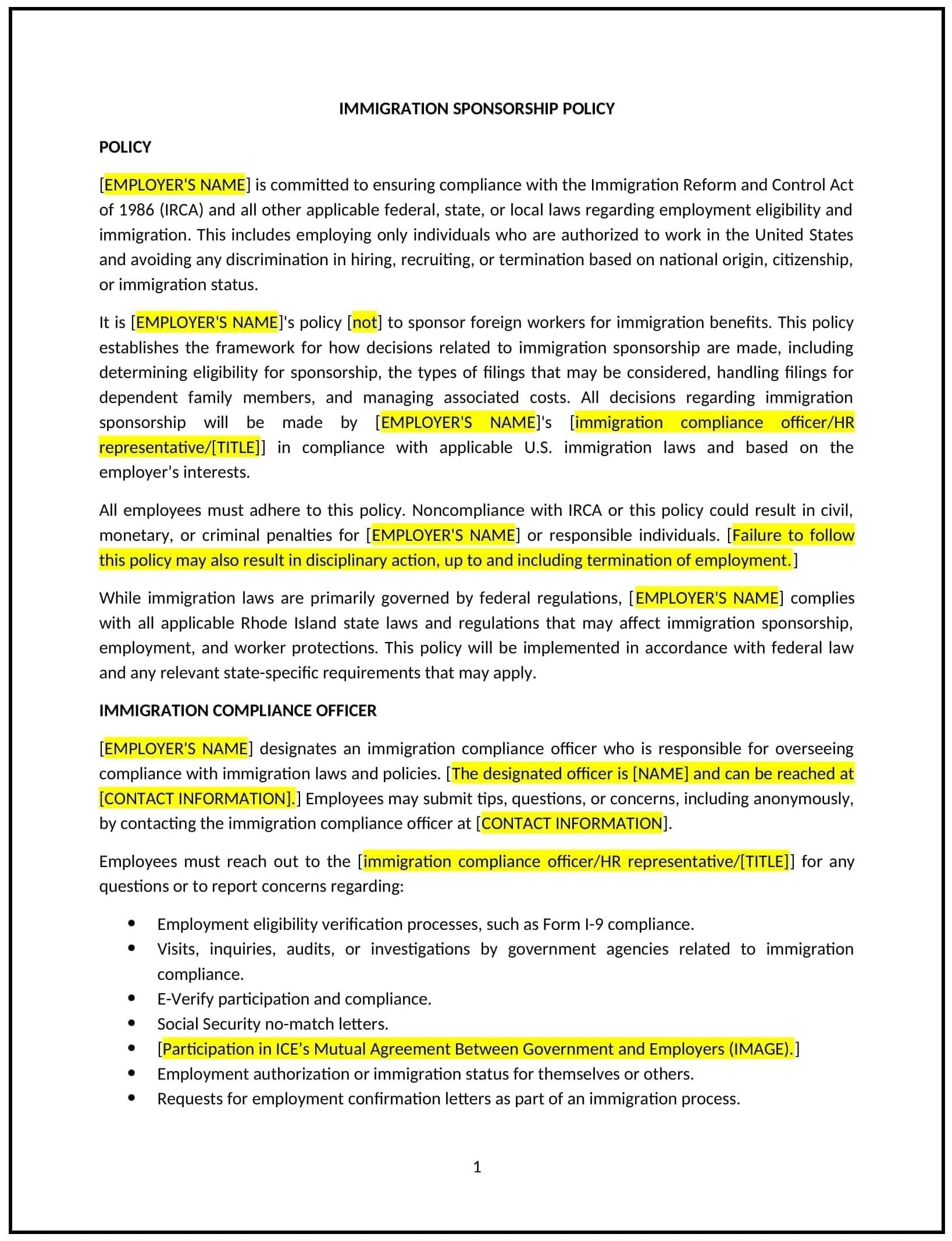Immigration sponsorship policy (Rhode Island): Free template
Got contracts to review? While you're here for policies, let Cobrief make contract review effortless—start your free review now.

Customize this template for free
Immigration sponsorship policy (Rhode Island)
This immigration sponsorship policy is designed to help Rhode Island businesses sponsor foreign workers for employment visas. It outlines procedures for determining eligibility, filing petitions, and complying with immigration laws.
By adopting this policy, businesses can attract global talent, ensure compliance with immigration regulations, and align with best practices for visa sponsorship.
How to use this immigration sponsorship policy (Rhode Island)
- Define eligibility criteria: Specify the qualifications required for sponsorship, such as skills or education.
- Establish petition procedures: Outline steps for filing visa petitions, including required documentation.
- Address compliance: Provide guidelines for maintaining compliance with immigration laws and reporting requirements.
- Train employees: Educate HR and managers on the policy and immigration processes.
- Review and update: Assess the policy annually to ensure it aligns with evolving business needs and legal standards.
Benefits of using this immigration sponsorship policy (Rhode Island)
This policy offers several advantages for Rhode Island businesses:
- Attracts global talent: Expands the pool of qualified candidates by sponsoring foreign workers.
- Ensures compliance: Aligns with federal immigration laws, reducing the risk of penalties.
- Enhances diversity: Brings diverse perspectives and skills to the workplace.
- Builds trust: Demonstrates to employees and stakeholders that the business values global talent.
- Aligns with best practices: Supports adherence to immigration and employment standards.
Tips for using this immigration sponsorship policy (Rhode Island)
- Communicate the policy: Share the policy with HR and managers involved in the sponsorship process.
- Provide training: Educate staff on immigration laws and the steps for filing visa petitions.
- Monitor compliance: Regularly review sponsorship practices to ensure adherence to the policy.
- Address issues promptly: Take corrective action if compliance issues arise.
- Update regularly: Assess the policy annually to ensure it aligns with evolving business needs and legal standards.